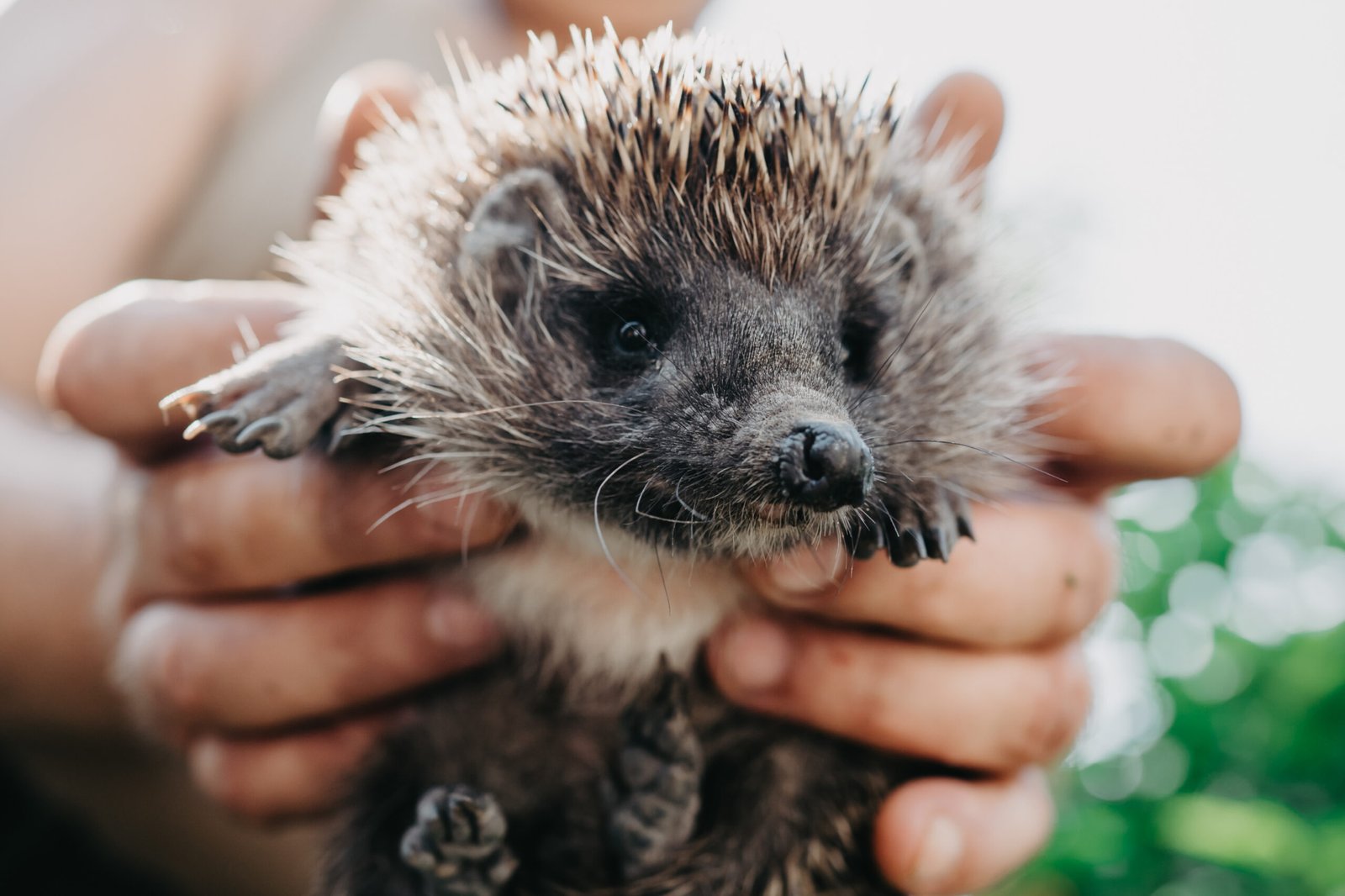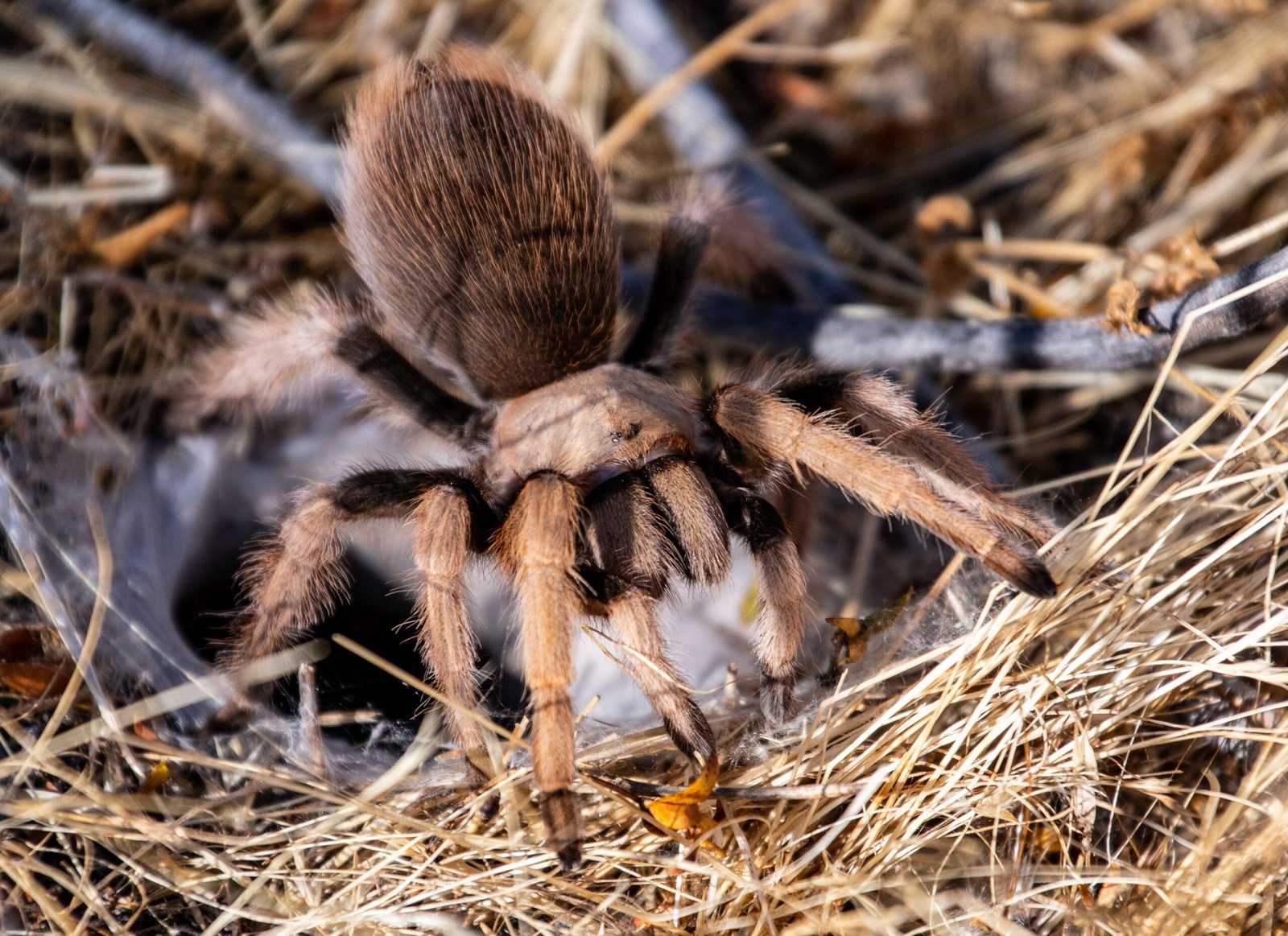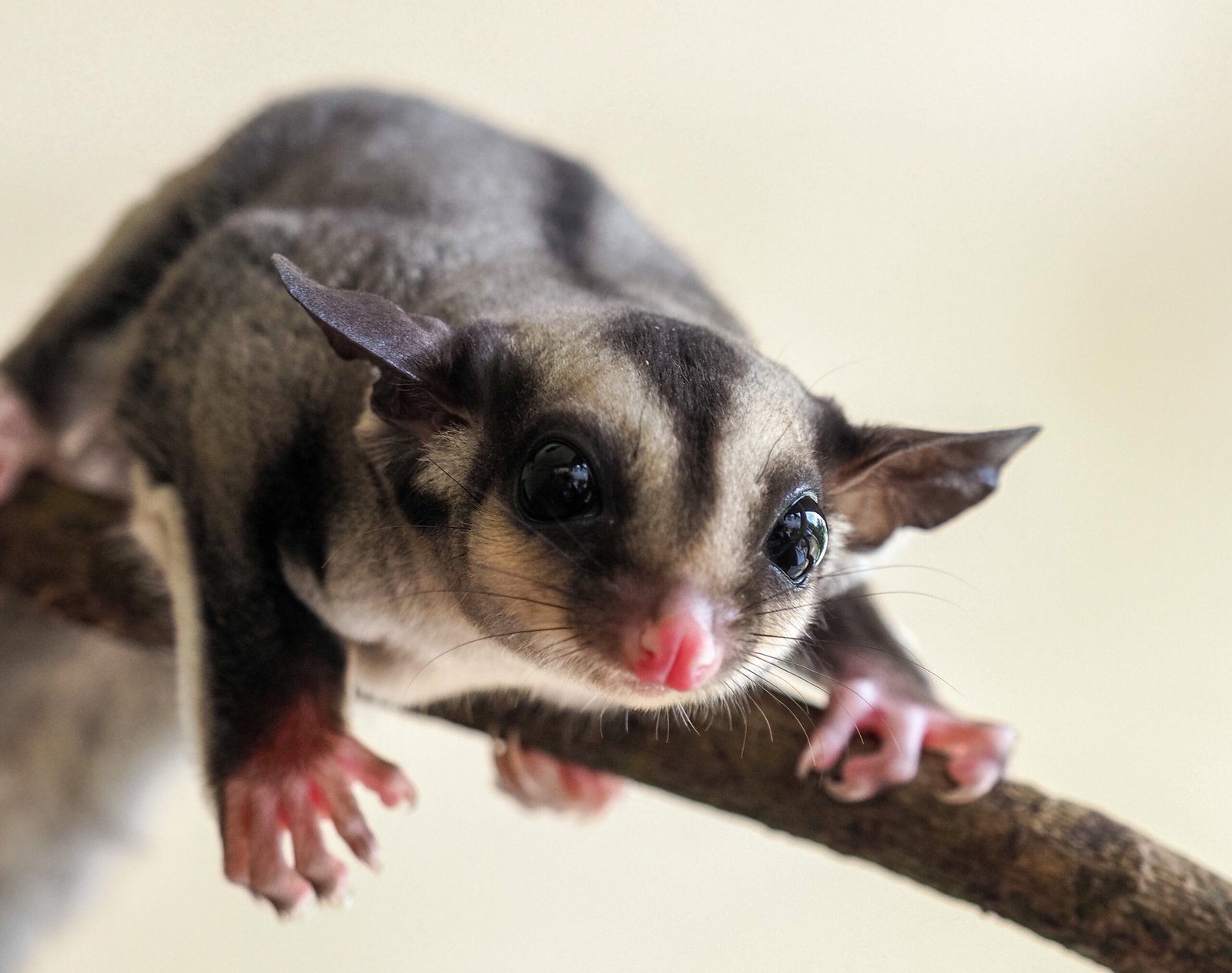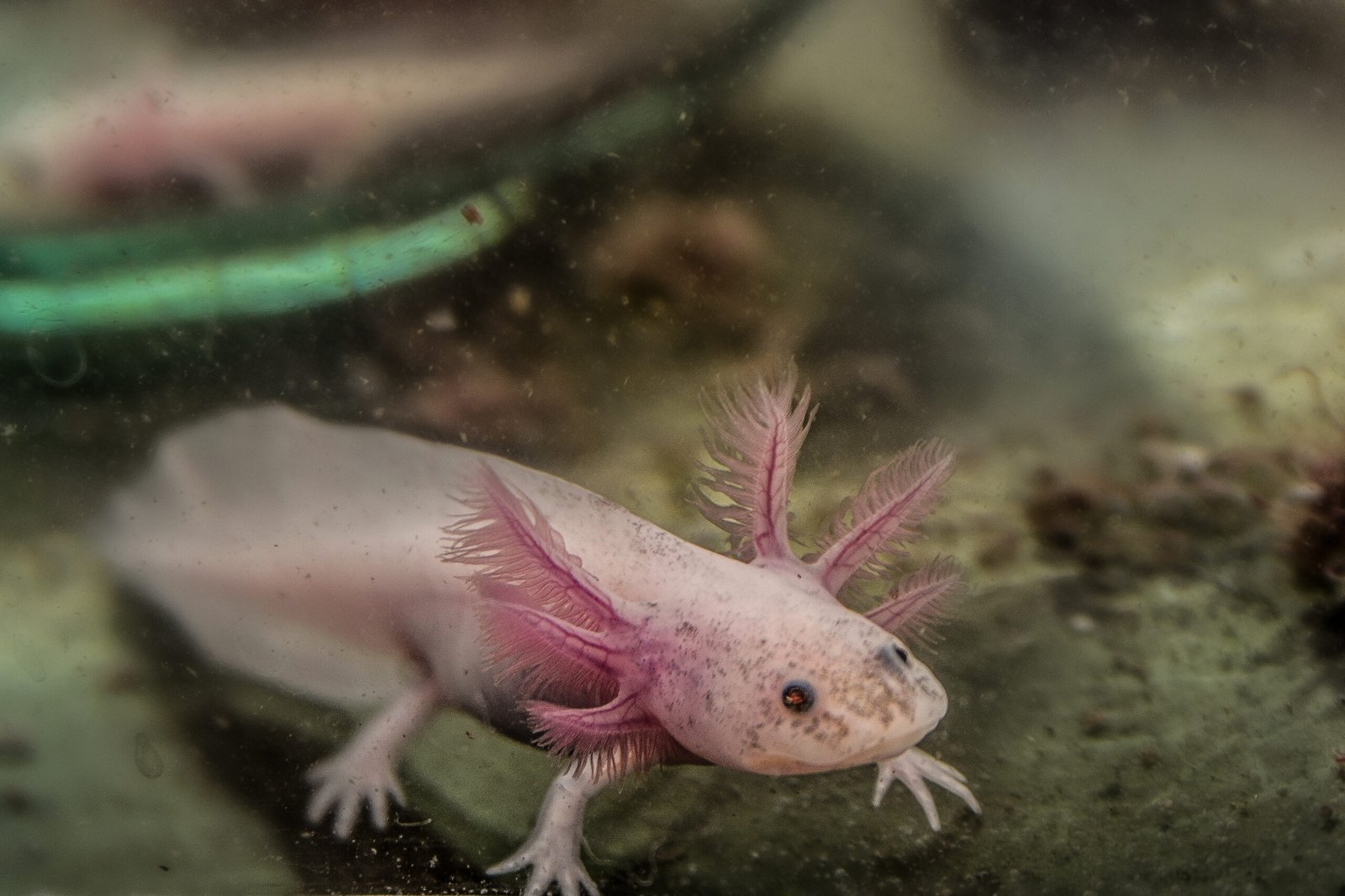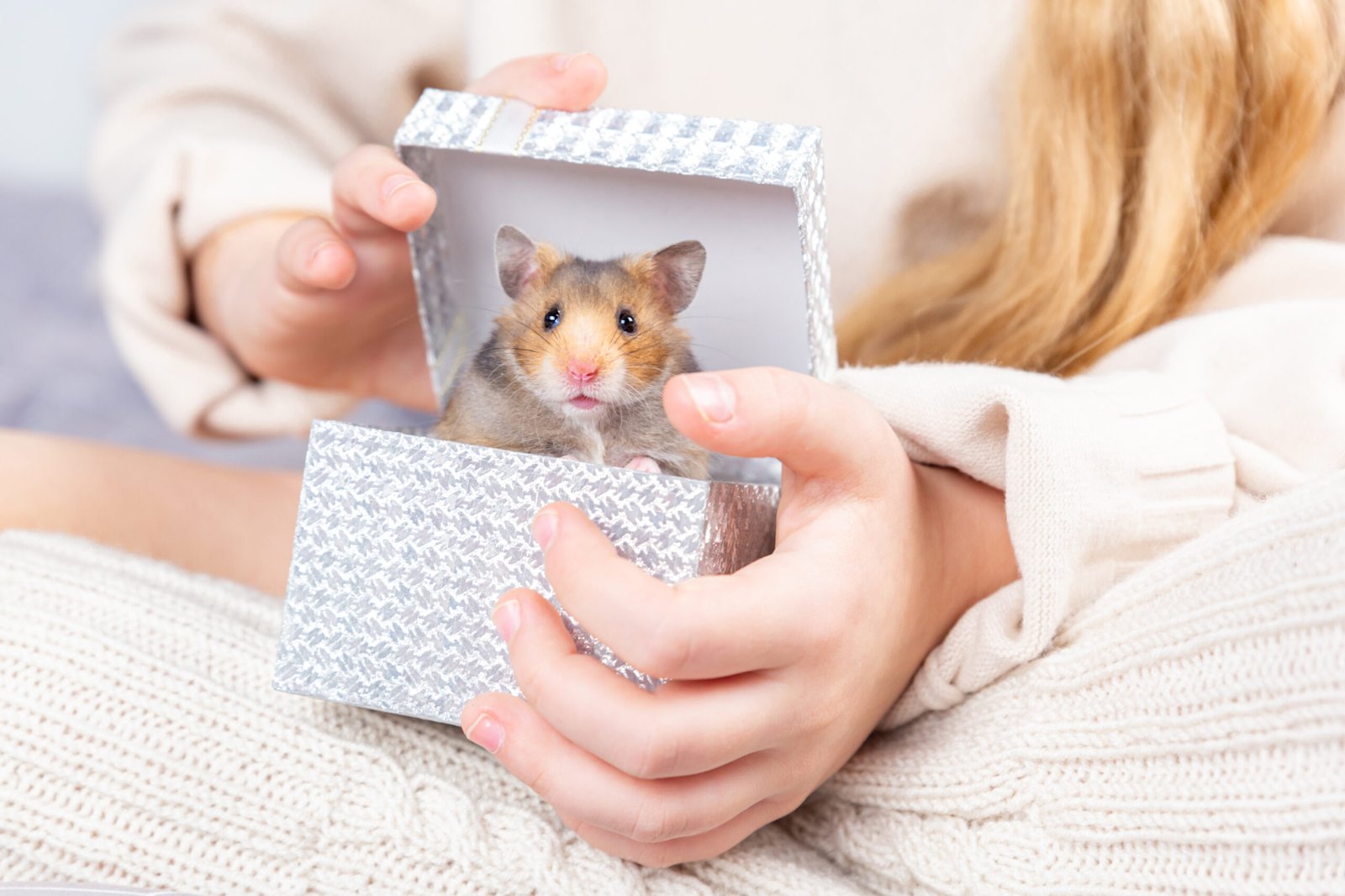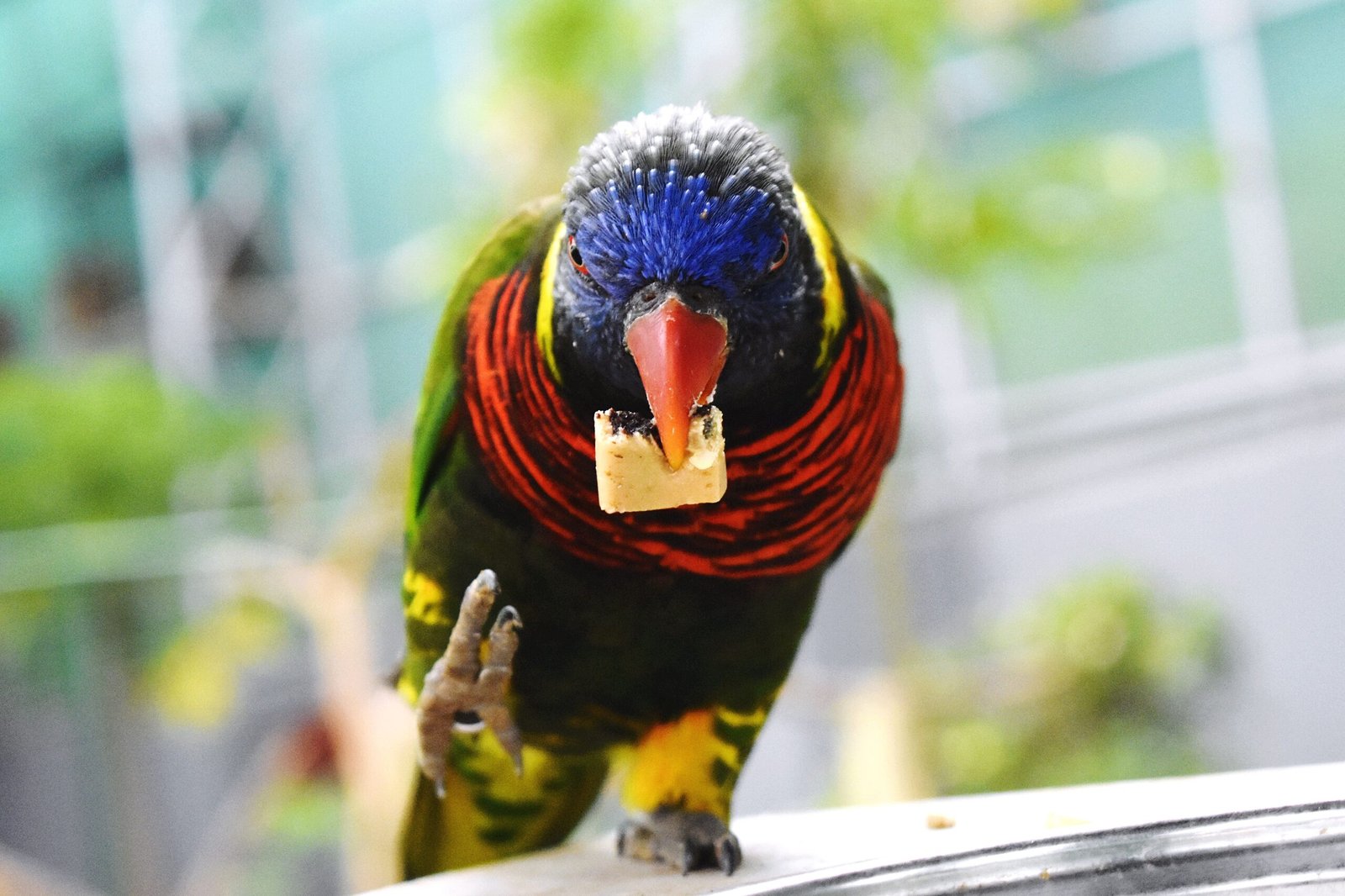Hedgehogs have been increasingly popular as exotic pets, captivating potential owners with their unique charm and small, manageable size. However, the decision to welcome a hedgehog into your home is not one to be taken lightly, as various myths and misconceptions can cloud the reality of hedgehog ownership. In this blog post, we’ll delve into the surprising truth about why hedgehogs make amazing pets and dispel common myths to set the record straight. Whether you’re a seasoned pet owner or new to the world of hedgehogs, this guide will provide you with the essential information needed to make an informed decision.
Are Hedgehogs Good Pets for Kids?
Hedgehogs can be a delightful addition to a family with children due to their manageable nature and educational potential. These low-maintenance creatures are relatively easy to care for, which makes them suitable for families, including those with young kids. Unlike more demanding pets, hedgehogs do not require constant attention, allowing children to take part in their care without feeling overwhelmed. Furthermore, their quiet nature and minimal space requirements make them a practical choice for many households.
Teaching kids responsibility and care for hedgehogs can be an educational experience. While hedgehogs are nocturnal and more active in the evenings, this aligns well with children’s schedules, allowing for interactive playtime after school. Handling hedgehogs requires patience and gentleness, reinforcing valuable traits of empathy and responsibility for young caretakers. It is crucial that children learn to engage with hedgehogs carefully, ensuring a safe environment for both the pet and its young owner.
– Low-maintenance requirements: Hedgehogs are generally easy to care for, allowing children to participate in their daily routines.
– Quiet demeanor: These small pets make minimal noise, perfect for homes where noise control is essential.
– Educational opportunities: Children learn responsibility and empathy through interaction and caretaking.
– Evening activity: Hedgehogs are active during times that suit after-school hours.
– Gentle handling: Hedgehogs teach patience and careful interaction, vital skills for young children to develop.
Overall, hedgehogs can be a suitable choice for families with children, provided there’s an understanding of their needs and proper supervision.
Here’s Why You Should Never Buy a Hedgehog
Despite their appeal, there are several compelling reasons to reconsider buying a hedgehog as a pet. While they appear to be charming, low-maintenance companions, hedgehogs have specialized care requirements that can become overwhelming for inexperienced owners. These nocturnal creatures can also be quite noisy during night hours, potentially disrupting household sleep schedules. Moreover, hedgehogs are prone to a range of health issues that require specialized veterinary care, which may be difficult to find and expensive.
Beyond basic care, hedgehogs demand regular, gentle handling to prevent stress and form a bond with their owners. Misconceptions about their suitability for homes with young children or other pets can lead to stressful environments that are not conducive to the hedgehog’s well-being. It’s essential to understand the commitment level involved before deciding to bring a hedgehog home, as neglecting their needs can lead to serious health and behavioral problems.
– Specialized care: Hedgehogs have unique needs that can challenge new pet owners.
– Nocturnal noise: Their night-time activity can disturb sleep patterns in the home.
– Health issues: Common health concerns require specialized, and often costly, veterinary attention.
– Need for handling: Regular contact is needed to prevent stress and encourage bonding.
– Misconceptions: They may not be suitable for families with young kids or other pets.
Ultimately, buying a hedgehog requires informed decision-making to ensure that the pet’s specific needs can be adequately met.
Hedgehogs are Solitary Animals Who Don’t Want to Interact with Humans
Hedgehogs are naturally solitary animals that often prefer their own company over human interaction or companionship with other animals. Despite this inherent trait, hedgehogs can still form meaningful bonds with their human caregivers through consistent, gentle handling. It’s vital for potential hedgehog owners to understand and respect these animals’ need for solitude, as pushing social interaction can lead to unnecessary stress and health issues for the pet.
Creating a quiet and secure environment for hedgehogs is essential to their well-being, as it allows them the space to feel at ease in their surroundings. While they may seem aloof, with patience and understanding, hedgehogs can become delightful and rewarding pets who thrive on their own terms. It is critical to offer your hedgehog the ability to retreat and spend time alone whenever they wish, as this promotes a sense of security and comfort.
– Solitary nature: Hedgehogs generally prefer their own company and thrive with independent activities.
– Bonding potential: Consistent and gentle handling can facilitate a bond with their humans.
– Stress avoidance: Giving hedgehogs alone time prevents stress and contributes to their health.
– Quiet habitat: A peaceful habitat enhances their comfort and contentment.
– Patient care: Understanding their need for solitude can result in a loving, gratifying pet relationship.
Respecting the solitary nature of hedgehogs can lead to a more fulfilling pet-owner connection, allowing them to thrive within the home environment.
Pros and Cons of Hedgehog Ownership
| Aspect | Pros | Cons |
|---|---|---|
| Low Maintenance | Hedgehogs require minimal grooming and have low food intake, making them easy to care for. | They still require regular cleaning, handling, and a carefully maintained environment. |
| Quiet Nature | Their calm demeanor and minimal noise are ideal for apartments or shared living spaces. | Hedgehogs may produce noises at night that could disturb light sleepers. |
| Unique Personality | Hedgehogs have quirky, curious personalities that can be charming and fun to observe. | They are solitary by nature and may not display affection in the same way as dogs or cats. |
| Hypoallergenic | Due to minimal shedding, they are often suitable for individuals with allergies. | Pet allergies vary, so individuals should still be cautious if sensitive. |
| Compact Size | Small, manageable size suitable for homes with limited space. | They still need a spacious cage and exercise area for optimal health. |
| Low Cost of Upkeep | Food and basic supplies are relatively affordable. | Initial setup costs for heating, enclosures, and enrichment items can be expensive. |
| Educational for Children | Teaches responsibility and gentle care to children, encouraging empathy. | Requires adult supervision with children due to hedgehogs’ delicate nature. |
| Exercise Requirements | Wheels and tunnels allow them to stay active without needing outdoor space. | Limited cage space can lead to inactivity; regular exercise is essential to avoid health issues. |
| Bonding Potential | With gentle handling, hedgehogs can form bonds with their owners. | They may initially appear aloof and require patience to build trust and familiarity. |
| Lifespan | Hedgehogs have a moderate lifespan of 4-6 years, suitable for families seeking a short-term pet. | Their relatively short lifespan can be disheartening for owners who wish for long-term companionship. |
| Dietary Needs | Simple diet primarily consisting of high-quality cat food and insects. | Specialized diets, including insects, may be challenging to maintain consistently. |
| Health Issues | Relatively hardy with few known hereditary diseases. | They are susceptible to obesity, mites, and certain illnesses, necessitating occasional vet visits. |
| Nocturnal Habits | Active at night, which fits well with owners who are busy during the day. | Their nocturnal nature may be disruptive to owners with different schedules. |
| Regulatory Considerations | Ownership may be permitted in certain regions with no need for additional licenses. | Hedgehog ownership is restricted or requires permits in some areas due to environmental laws. |
| Enclosure Requirements | Can thrive in a well-designed, temperature-controlled indoor space. | They need specific temperature control (72-80°F) and a spacious, enriching enclosure to avoid stress. |
Buying a Hedgehog Supports the Deadly “Pocket Pet” Trade
Many people may not realize that purchasing a hedgehog, whether from a pet store or a breeder, can inadvertently support the harmful “pocket pet” trade. This industry often prioritizes profit over the welfare of animals, leading to breeding practices that result in poor conditions and health challenges for hedgehogs. Many hedgehogs within the pet trade are bred in facilities where they face neglect and health issues, which can cause behavioral problems and a poor quality of life for the animals.
The high demand for hedgehogs as trendy pets encourages mass breeding, resulting in widespread inhumane conditions. Individuals who buy hedgehogs directly support a cycle of exploitation and suffering that continues to plague this industry. Prospective pet owners are encouraged to adopt from reputable rescues or shelters, ensuring their new pet has been cared for ethically and compassionately, without supporting harmful trade practices.
– Animal welfare concerns: The “pocket pet” trade often neglects animal well-being in favor of profit.
– Poor breeding conditions: Hedgehogs frequently endure neglect and associated health issues.
– Mass production issues: High demand for hedgehogs spurs reckless, large-scale breeding with little regard for animal welfare.
– Ethical adoption choice: Adopting from shelters ensures care for animals in a compassionate manner.
– Cycle of exploitation: Supporting unscrupulous breeders perpetuates animal welfare problems.
Choosing to adopt rather than buy plays a crucial role in combating the negative aspects of the pocket pet trade, promoting animal welfare and health above profit.
Hedgehogs’ Needs Aren’t Met When They Live in a Cage
Traditional cages are often insufficient to meet the needs of a hedgehog, indicating a deeper understanding of their environmental requirements is crucial for owners. While they may seem content in confined spaces, hedgehogs naturally require ample room to roam, forage, and engage in natural behaviors, such as digging and exploring. This level of activity is severely limited in a conventional cage, potentially causing stress and health complications over time.
Hedgehogs thrive in environments that mimic their natural habitats, requiring spacious enclosures with diverse opportunities for enrichment. Potential hedgehog owners must prioritize creating a stimulating environment that offers safety without restricting their pet’s inherent need for exploration. By doing so, owners can enhance their pet’s well-being and overall quality of life.
– Limited space issues: Traditional cages often restrict a hedgehog’s natural behaviors.
– Need for enrichment: A domesticated environment should mimic natural surroundings through diverse stimuli.
– Potential for stress: Over-restricted spaces lead to stress and health issues in hedgehogs.
– Proper enclosure planning: A thoughtfully arranged space contributes to a happy and healthy pet.
– Focus on environment: Prioritizing naturalistic settings supports a healthier lifestyle for hedgehogs.
Providing an appropriate living environment is essential to enriching and maintaining the health of a pet hedgehog, enhancing their quality of life considerably.
Keeping a Hedgehog May Be Illegal or Restricted in Your Area
Before adopting a hedgehog, it’s vital for prospective owners to research local laws and regulations. Hedgehog ownership can be illegal or restricted in many areas due to environmental concerns or local wildlife protection laws. Some regions require specific permits or special licenses to keep hedgehogs as pets, which can affect their feasibility as a pet option for some individuals.
Local government and environmental authorities often impose such restrictions to prevent potentially harmful impacts on indigenous ecosystems. Penalties for violating these regulations can result in fines or legal consequences, making it crucial for potential owners to conduct thorough research. If hedgehogs are off-limits, individuals should consider other small pets that suit their lifestyle.
– Research essential: Checking local laws is a vital step before hedgehog adoption.
– Permit requirements: Some areas may authorize hedgehog ownership, subject to specific permits.
– Ecosystem protection: Restrictions often aim to minimize harm to local flora and fauna.
– Penalties for violations: Legal consequences emphasize the importance of compliance.
– Alternative pets: Consideration should be given to other pets that fulfill similar roles without legal issues.
Understanding and respecting local laws can help potential owners make informed decisions, maintaining a responsible and legal approach to hedgehog ownership.
What Are the Common Myths About Keeping Hedgehogs as Pets?
Misconceptions about hedgehogs as pets often underestimate their care needs and the importance of understanding their behaviors. Many individuals mistakenly believe that hedgehogs require minimal maintenance, but they demand regular attention to their health, habitat, and diet. Another common myth is that being nocturnal means hedgehogs will disrupt household sleep patterns, although they can adapt to a household schedule if acclimated properly.
Additionally, hedgehogs are frequently misunderstood as antisocial creatures, when in fact, correct handling can nurture affectionate behavior. It’s a common misconception that hedgehogs can subsist solely on cat food when their ideal diet involves varied foods to meet nutritional needs. Moreover, some people believe that hedgehogs possess natural immunity to diseases, when they are indeed susceptible to conditions like mites or obesity and need regular vet care.
– Maintenance misunderstandings: Hedgehogs need regular care and attention.
– Nocturnal habits: Proper adaptation allows them to adjust to the home’s active schedule.
– Social potential: With appropriate care, hedgehogs can be affectionate pets.
– Diet requirements: Hedgehogs need a balanced diet beyond cat food.
– Health vulnerabilities: Susceptibility to certain conditions requires regular vet checkups.
Dispelling these myths helps prospective owners understand the true demands of hedgehog care and prepares them for a meaningful pet relationship.
How Do Hedgehogs Compare to Other Small Pets in Terms of Care Requirements?
Hedgehogs offer a unique combination of requirements that may appeal to those considering small pets but come with distinctive care necessities. Compared to animals like hamsters or guinea pigs, hedgehogs are more independent, needing less constant human interaction and socialization. However, they require a specific, temperature-controlled environment and ample space to roam, which highlights the importance of a well-designed enclosure.
While hedgehogs are solitary creatures, they require a unique diet that primarily includes high-quality cat food and insects. This differs from the typical diets of other small pets but becomes manageable with adequate preparation. Maintaining proper hygiene through regular cleaning and nail trimming is essential, much like for other small animals.
– Independence: Hedgehogs are more suited to solitary living than other pets.
– Habitat needs: A temperature-controlled, spacious environment is required for hedgehogs.
– Dietary specifics: Their diet demands are precise and include special foods like insects.
– Hygiene importance: Cleaning routines resemble those needed for other small pets.
– Social preferences: Hedgehogs do not need companionship like many small creatures.
Understanding these comparison points aids in determining if hedgehogs meet your pet preferences based on their care level relative to other small animal options.
Are Hedgehogs Suitable Pets for Families with Children?
While hedgehogs can be delightful pets for the right family, careful consideration must be given to their specific care requirements, particularly when young children are involved. Hedgehogs are naturally timid and may require time to acclimate to being handled by children. Patience is crucial in teaching children the proper way to interact with these small animals, ensuring that the experience is positive for both parties.
Owning a hedgehog also presents an educational opportunity, teaching kids about responsibility through routine feeding, cleaning, and socializing. However, families must remain aware of a hedgehog’s specific needs, including housing and environmental conditions. Interactions should always be gentle and under adult supervision to prevent stress or injury to the hedgehog.
– Handling patience: Hedgehogs may require time to adjust to handling by children.
– Educational value: Teaches children responsibility through regular pet care.
– Special needs: Families must be mindful of housing and environmental requirements.
– Supervised interaction: Adult supervision is key to ensuring safe interaction.
– Timid nature: Positive handling experiences are crucial for both hedgehogs and children.
By understanding the dynamics of hedgehog care in a family setting, parents can foster a rewarding and educational pet experience.
What Are Some of the Benefits of Having a Hedgehog as a Pet?
Hedgehogs bring a wealth of benefits as pets, making them ideal for specific households or lifestyles. One of their most attractive features is their low-maintenance nature, requiring minimal grooming and providing a great fit for busy owners. Additionally, their hypoallergenic qualities due to low shedding make them a favorable pet for individuals with allergies.
Their small size is a significant advantage for those living in apartments or with limited space, as they require less room compared to larger pets. Moreover, their quiet demeanor ensures they remain unobtrusive in shared living spaces. Hedgehogs also offer endless entertainment through their unique behaviors, as their curious nature and playful antics captivate their owners.
– Low maintenance: Minimal grooming needs make them perfect for busy lifestyles.
– Hypoallergenic: They are compatible with allergy sufferers due to minimal shedding.
– Compact size: Ideal for small living spaces like apartments.
– Quiet habits: Their calm nature suits shared or noise-sensitive environments.
How can I ensure that I am providing a suitable environment for my pet hedgehog?
Ensuring that your pet hedgehog has a suitable environment is crucial to its health, happiness, and overall well-being. Here are several essential aspects to consider when setting up the perfect habitat for your quilled friend:
1. Cage or Enclosure
Choose a spacious cage or enclosure that provides ample room for your hedgehog to move around. A minimum of 2 square feet is generally recommended, but larger is always better. Opt for a cage with smooth walls, as hedgehogs are adept climbers and can injure themselves if they fall from a height. Wire-bottomed cages should be avoided because they can harm the hedgehog’s sensitive feet. A solid, easy-to-clean floor is ideal.
2. Temperature Control
Hedgehogs thrive in a warm environment. It’s important to maintain the enclosure temperature between 72°F and 80°F (22°C to 27°C) to prevent your hedgehog from going into hibernation, which can be harmful. A small space heater, ceramic heat emitter, or under-tank heater can be used to maintain the right temperature. Regardless of your choice, ensure it is controlled with a reliable thermostat.
3. Bedding and Substrate
The right bedding is crucial for comfort and hygiene. Paper-based bedding is highly recommended due to its absorbency and softness, making it gentle on your hedgehog’s delicate skin. Avoid using cedar or pine shavings, as they can emit oils and fumes harmful to hedgehogs. Consider adding a few inches of substrate to allow for digging and burrowing, as this is a natural behavior for hedgehogs.
4. Hideaways and Enrichment
Hedgehogs are nocturnal and need places where they can feel safe and secure. Provide various hiding spots such as igloos, tunnels, or small boxes. These hideaways give them the opportunity to retreat and rest during the day. Incorporating items like wheels, tunnels, and chew toys will keep them physically active and mentally stimulated.
5. Diet and Water
A balanced diet is essential for a hedgehog’s health. High-quality commercial hedgehog food is a great staple, supplemented with occasional treats like insects (mealworms or crickets), cooked chicken, or fruits and vegetables. Ensure fresh water is available at all times, preferably in a bowl rather than a bottle, as sipping from a bowl is closer to how they drink in the wild.
6. Regular Cleaning Routine
Maintaining a clean habitat is vital to prevent odor and the spread of bacteria or parasites. Clean food and water dishes daily, spot-clean soiled bedding regularly, and do a full cage clean at least once a week. Use pet-safe disinfectants and rinse thoroughly to remove residue before placing your hedgehog back inside.
Essential Aspects of a Suitable Hedgehog Environment
| Aspect | Description | Tips |
|---|---|---|
| Cage or Enclosure | Choose a spacious cage (minimum 2 sq. feet) with smooth walls to prevent climbing injuries. Wire-bottomed cages should be avoided to protect their sensitive feet. | Select a solid, easy-to-clean floor and opt for larger enclosures if possible. Smooth walls are essential to prevent injury. |
| Temperature Control | Hedgehogs require a temperature range of 72°F to 80°F (22°C to 27°C) to avoid hibernation, which can be harmful. | Use a ceramic heat emitter, space heater, or under-tank heater with a reliable thermostat to maintain consistent temperatures. |
| Bedding and Substrate | Paper-based bedding is ideal for absorbency and softness, protecting your hedgehog’s skin. Avoid cedar or pine shavings as they release harmful oils. | Add a few inches of substrate for digging and burrowing to mimic natural behaviors. Choose bedding that is soft, dust-free, and easy to replace. |
| Hideaways and Enrichment | Provide safe hiding spots like igloos, tunnels, or small boxes for your hedgehog to rest during the day. | Add wheels, tunnels, and chew toys for physical activity and mental stimulation. Place hideaways in quiet areas of the enclosure to create a comforting retreat. |
| Diet and Water | Offer a balanced diet including high-quality hedgehog food, with occasional treats like insects, cooked chicken, fruits, or vegetables. Fresh water should be available at all times, preferably in a shallow bowl. | Ensure a varied diet to meet nutritional needs and use a bowl instead of a bottle, as it is closer to their natural drinking behavior. Rotate treats occasionally for added interest while avoiding high-sugar and high-fat foods. |
| Regular Cleaning Routine | Regular cleaning is essential to avoid odor and bacteria. Clean food and water dishes daily, spot-clean soiled bedding, and perform a full cage clean weekly. | Use pet-safe disinfectants and rinse thoroughly to avoid chemical residue. Schedule consistent cleaning routines to maintain a hygienic environment, reducing the risk of health issues caused by bacteria and parasites. |
In conclusion, the journey to understanding why hedgehogs make great pets involves dismantling common myths and embracing the delightful reality of these unique creatures. Although often misunderstood, hedgehogs are ideal companions for those seeking a pet with personality and charm. Their low-maintenance lifestyle, combined with their nocturnal habits, makes them perfect for individuals with busy daytime schedules. It’s crucial to debunk misconceptions—such as hedgehogs being prickly and antisocial—by highlighting their capacity for bonding and adaptability in loving homes. By educating potential pet owners on the true nature of these creatures, we can cultivate an appreciation for the joys and responsibilities of hedgehog ownership. Through informed care and a nurturing environment, hedgehogs can thrive, bringing joy and companionship to households ready to embrace their unique quirks.
